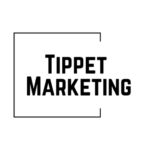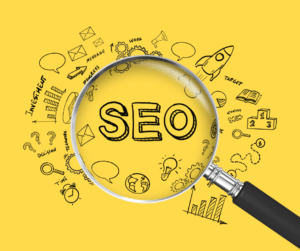Unleashing Your Marketing Agency’s Potential
In today’s digital age, social media has become an indispensable tool for businesses to connect with their target audience, build brand awareness, and drive sales. For marketing agencies, having a robust social media strategy is no longer an option; it’s a necessity to stay competitive in the ever-evolving landscape of online marketing. In this blog post, we’ll delve into what a social media strategy is and explore the compelling reasons why your marketing agency needs one to succeed.
What is a Social Media Strategy?
A social media strategy is a comprehensive plan that outlines your marketing agency’s approach to leveraging various social media platforms to achieve specific business goals. It goes beyond merely posting content on Facebook, Instagram, Twitter, LinkedIn, or other social networks. A well-crafted strategy involves careful planning, analysis, and execution to ensure maximum impact.
Key Elements of an Effective Social Media Strategy:
- Clear Objectives: A successful social media strategy starts with clearly defined and measurable objectives. Whether it’s increasing brand awareness, driving website traffic, generating leads, or improving customer engagement, having concrete goals enables your agency to track progress and adapt tactics accordingly.
- Audience Research: Understanding your target audience is crucial for crafting content that resonates with them. Conduct in-depth research to identify their preferences, pain points, and online behavior, which will inform the type of content and platforms you prioritize.
- Content Planning: Consistent, valuable, and engaging content lies at the heart of a strong social media strategy. Develop a content plan that aligns with your agency’s goals and speaks directly to your audience. A mix of text, images, videos, infographics, and user-generated content can keep your social media presence fresh and captivating.
- Platform Selection: Each social media platform caters to different demographics and interests. Carefully choose the platforms that align with your target audience and business objectives. It’s better to excel on a few platforms than to spread thin across all of them.
- Posting Schedule: Timing plays a significant role in social media success. Determine the optimal posting schedule for each platform to maximize reach and engagement. Use analytics tools to track when your audience is most active and adjust your posting schedule accordingly.
- Social Media Advertising: Paid advertising on social media platforms can be a game-changer for your marketing agency. Incorporate paid campaigns into your strategy to expand your reach, attract new followers, and drive conversions.
- Community Engagement: Social media is all about building meaningful connections with your audience. Dedicate time and effort to engage with followers, respond to comments and messages promptly, and foster a sense of community around your brand.
Why Your Marketing Agency Needs a Social Media Strategy:
- Competitive Edge: In a highly competitive market, having a well-crafted social media strategy sets your marketing agency apart from the rest. It allows you to demonstrate your expertise in leveraging social media for marketing, attracting clients who recognize the value of a strong online presence.
- Targeted Reach: With billions of active social media users, these platforms offer an unparalleled opportunity to reach your target audience directly. A strategy ensures your message reaches the right people at the right time, increasing the likelihood of conversions.
- Brand Building: Social media provides a platform for showcasing your agency’s personality, culture, and unique selling propositions. Consistent branding and messaging across platforms strengthen your agency’s identity and foster trust among potential clients.
- Measurable Results: A social media strategy allows you to track and measure the performance of your campaigns. Data-driven insights enable your agency to make informed decisions, refine tactics, and optimize future efforts for better results.
- Cost-Effective Marketing: Compared to traditional advertising channels, social media marketing offers a cost-effective way to promote your agency’s services and attract new clients. You can allocate budgets strategically and test campaigns without breaking the bank.

In today’s digitally connected world, a robust social media strategy is the backbone of any successful marketing agency. It empowers you to connect with your target audience on a personal level, drive brand awareness, and generate valuable leads. By incorporating a well-planned social media strategy into your agency’s marketing efforts, you’re poised to thrive in the dynamic landscape of online marketing, establishing your agency as a go-to expert in the industry. Embrace the power of social media and unleash your marketing agency’s full potential!




